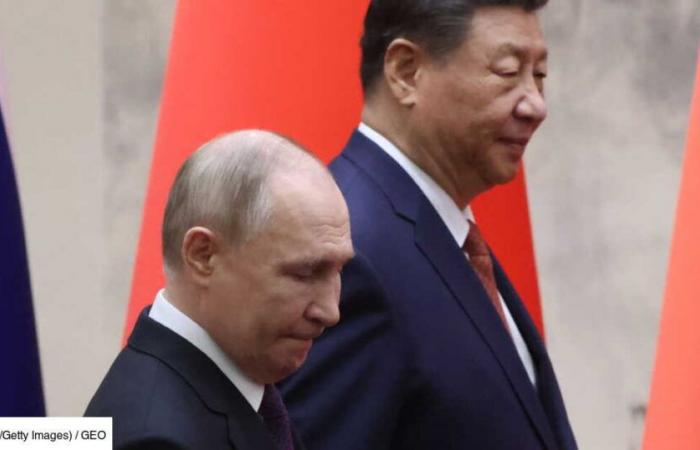Are relations between China and Russia as fruitful and strong as they seem? Supposed to be in the “golden hour” of their bilateral trade and facing a West commonly accused of “imperialism”, Beijing and Moscow are however experiencing very remarkable “hiccups” in this opportune friendship.
Persona non grata on the European and American markets, Russia has massively redirected its production and exports of hydrocarbons towards the Asian market. A winning bet for Moscow, it seems, because the figures are clear: trade between Russia and China reached the record figure of 240 billion dollars (221.78 billion euros) in 2023, according to Reuters which takes up Beijing’s balance sheets. That’s more than double the figure for 2018 and far exceeds the $200 billion target set for 2024 by Presidents Vladimir Putin and Xi Jinping.
The end of the good days?
According to a Chinese customs report, China’s exports to Russia, including vehicles and manufactured goods, increased 47% to $111 billion over the period. China’s imports from Russia, including oil, gas and metals, jumped 12.7% to $129 billion. China’s trade surplus with Russia stood at $18 billion.
“In a short period of time, China has replaced the European Union as Russia’s largest buyer of energy and supplier of goods, giving Russia both cash and the manufactured goods it needs to survive.”pointed out analysts Yanmei Xie and Thomas Gatley in February, in a note for the economic research company Gavekal. A position which, according to some observers, sometimes confers vassalage, as Moscow depends on Chinese products and purchases to clean up its finances disrupted by the Ukrainian conflict.
The Russian Federation’s eastern neighbor has established itself as a substitute supplier to its warring neighbor, from clothing to cars, notes Bloomberg. At the same time, Russia has increased its exports of raw materials such as coal and aluminum to China.
Furniture, a bone of contention
Among the goods imported from China to Russia are many pieces intended for furniture, and these have recently been the subject of a unilateral restriction by Moscow, which could well be seen as a betrayal by its partner.
Thus, according to Forbes on December 7, Russia imposed a customs tariff of 55.65% on furniture parts manufactured in China. Bad news for Beijing, which is gritting its teeth while waiting for the wave of taxes promised by Donald Trump.
The news came from Vladivostok, a customs office on the eastern borders of Russia, and an outpost of Moscow’s land trade with its Chinese neighbor. In the fall, the city’s customs department, which Asia Times reports handles 90 percent of imports of Chinese furniture parts into Russia, reclassified furniture sliding rail components as types of bearings, leading to a drastic increase in rates from 0% to 55.65%.
A vitriolic idyll
This increase is very poorly received by Russian furniture manufacturers, who import Chinese components en masse – up to 90%, according to Forbes. The Association of Furniture and Woodworking Companies of Russia (AMDPR) said the new tariff would lead to bankruptcies and create 15% additional costs for local manufacturers.
On the other side of the border, the reaction is awaited, but there is no doubt that China will react to this little Russian stab. One of Beijing’s levers could be the Power of Siberia 2, a giant gas pipeline planned to transport 50 billion cubic meters of gas per year between Russia and its Chinese client.
The project, which should anchor Russia’s new tilt towards the East, is still shrouded in uncertainties: the construction of the 4,000 km corridor, which was to begin in early 2024, is still at a standstill, and the bad will of Beijing would be no stranger to it.






